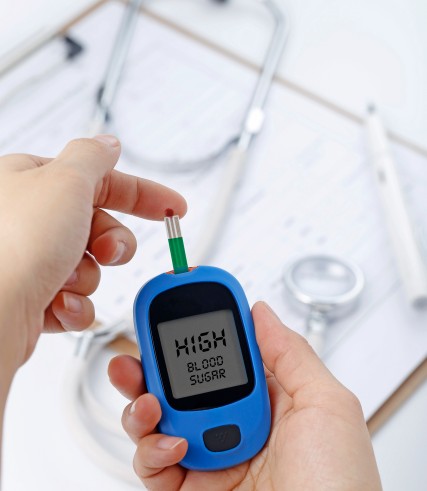

Diabetes is a chronic metabolic disorder characterized by elevated levels of blood glucose, commonly referred to as blood sugar. The condition arises when the pancreas fails to produce enough insulin or when the body cannot effectively use the insulin it produces. Insulin is a hormone crucial for regulating blood sugar levels, allowing cells to absorb and utilize glucose for energy.
There are two main types of diabetes: Type 1 and Type 2.
1.Type 1 Diabetes: This form typically develops early in life, often during childhood or adolescence. It results from the immune system mistakenly attacking and destroying the insulin-producing cells in the pancreas. Individuals with Type 1 diabetes require lifelong insulin injections or the use of an insulin pump to manage their blood sugar levels.
2.Type 2 Diabetes: This type is more common and is often associated with lifestyle factors such as obesity and sedentary behavior. In Type 2 diabetes, the body either does not produce enough insulin, or the cells become resistant to its effects. Lifestyle modifications, including a balanced diet, regular exercise, and sometimes medication, are essential components of managing Type 2 diabetes.
Common symptoms of diabetes include increased thirst, frequent urination, unexplained weight loss, fatigue, and blurred vision. If left untreated or poorly managed, diabetes can lead to serious complications, including heart disease, kidney damage, nerve damage, and vision problems.
Preventive measures and management strategies include maintaining a healthy lifestyle through regular exercise, a balanced diet, and weight control. Monitoring blood sugar levels, taking prescribed medications, and regular medical check-ups are crucial for effective diabetes management.